Search Results
Showing results 181 to 200 of 305
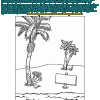
The Legend of the Flying Frog
Source Institutions
In this activity, learners listen to a story about a made-up endangered species--a flying frog! Learners print out six story pages and then draw the pictures and write the captions.
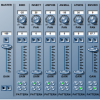
Sound Mixer: A Multi-track Mixer of Animal Sounds
Source Institutions
This is a virtual representation of a sound mixer containing pre-looped sounds of animal, insect, and environmental noises.
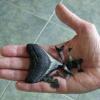
Chomp
Source Institutions
In this activity (page 5 of pdf), learners explore the relationships between the shape and structure of a shark's teeth and the food it eats, and then create their own shark tooth from clay.
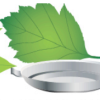
Paper Chromatography with Leaves
Source Institutions
In this activity on page 5 of the PDF (Plants—The Green Machines), learners use chromatography to separate and identify pigments within various leaves.
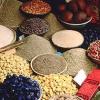
Spice World
Source Institutions
In this activity, learners create a map showing the origins of spices and herbs from a favorite recipe(s). Learners first research the origins of the ingredients and then locate them on a world map.

Straw Pipes
Source Institutions
Learners build pan pipes out of drinking straws by cutting them to different lengths. Then, learners make music by blowing across the straws and playing some well-known songs.
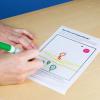
Exploring the Universe: Imagining Life
Source Institutions
“Exploring the Universe: Imagining Life” is a hands-on activity in which visitors imagine and draw an extreme environment beyond Earth, then invent a living thing that could thrive in it.
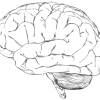
Train Your Brain
Source Institutions
In this activity, learners play a trick on their own brain to see if the brain can learn to ignore distracting input. Colors and words are used to play the visual trick, known as a Stroop Test.
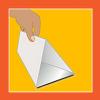
Kaleidoscope
Source Institutions
In this activity, learners investigate the reflective properties of light and mirrors as they make a kaleidoscope.
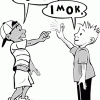
I M O K. U R O K.: You Can Make Sentences Without Words!
Source Institutions
Can you read the sentence "I C U"? Not really - but if you say each letter aloud, you'll say the simple sentence, "I see you." What if you change the "C" into a picture of an eye?
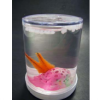
Coral Spawning Globe
Source Institutions
This activity models the mass coral spawning event that takes place at Flower Garden Banks National Marine Sanctuary every August.
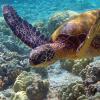
Habitat Adaptation Matchup
Source Institutions
In this activity, learners work in small groups to match various marine animals with their different environments.
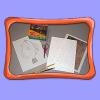
Crazy Camouflage
Source Institutions
In this activity about camouflage, learners create a model that shows how a flounder is able to blend into a variety of environments.
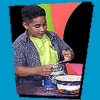
Super Sounding Drum
Source Institutions
In this activity, learners construct drums out of everyday containers (like bowls or food containers) and shrink wrap. Learners use a hair dryer to affix and tighten the shrink wrap to the container.
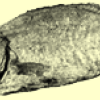
Make a "Mummy"
Source Institutions
The Ancient Egyptians used a naturally-occurring salt from the banks of the Nile River, called natron, to mummify their dead.
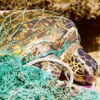
All Tangled Up
Source Institutions
In this activity on page 60, learners examine and simulate wildlife entanglement by experiencing what it might be like to be a marine animal trapped in debris.
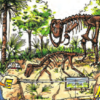
Dinosaur Interaction
Source Institutions
In this activity, learners explore why animals, specifically dinosaurs, live in families.
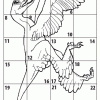
Smaller Than You Think
Source Institutions
Learners compare a life-size drawing of a Tyrannosaurus rex head and a full-size Sinornithosaurus body to understand that dinosaurs varied in size.

What Color is Your Air Today?
Learners develop awareness and understanding of the daily air quality using the Air Quality Index (AQI) listed in the newspaper or online.

Sing - Suchomimus Was His Name
Source Institutions
In this activity (located on page 2 of PDF), learners sing together a song that gives details about the dinosaur species Suchomimus (pronounced “Sook-o-mime-us”).
